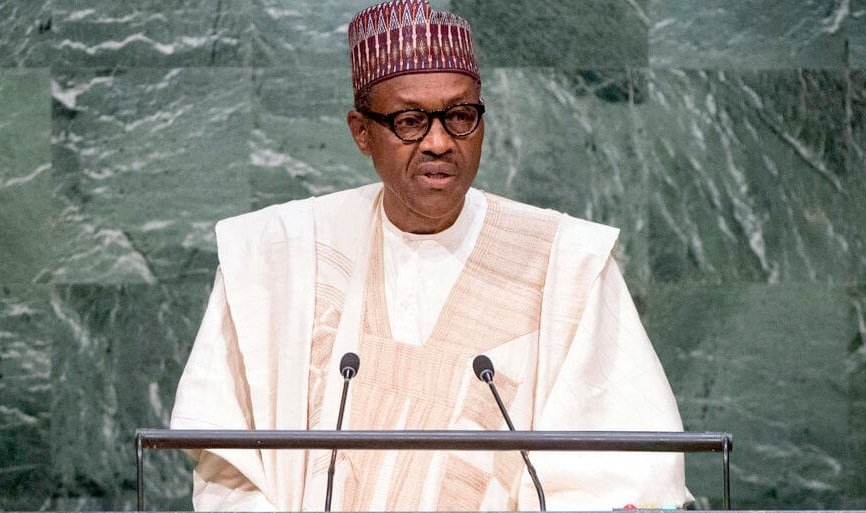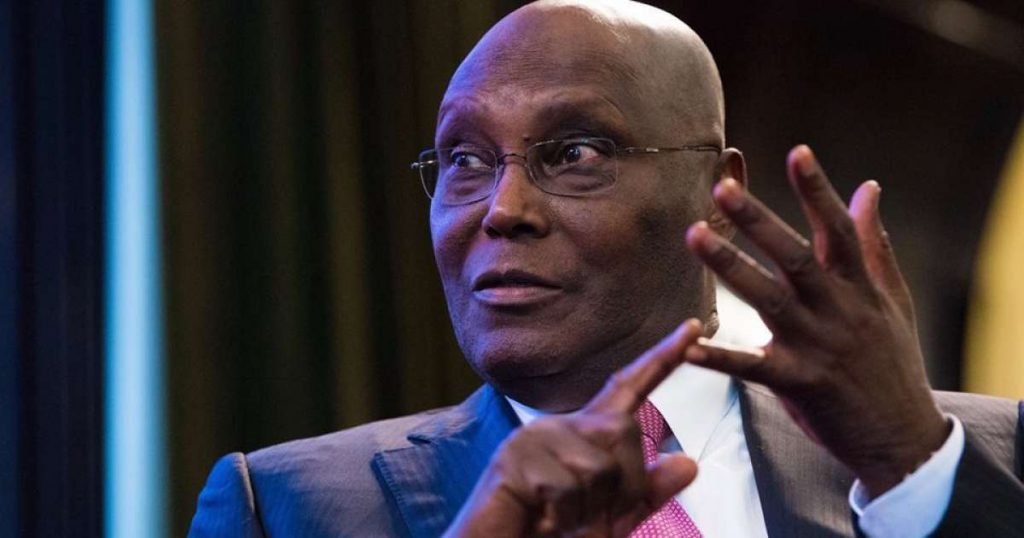President Muhammadu Buhari on Monday warned the police to shun excessive use of force and harassment of innocent young Nigerians in their quest to rid the country of internet fraudsters.
Buhari also stressed the need to close trust gaps between the police and citizens, build partnerships and strengthen collaborations with communities to address prevalent security threats.
The president spoke at the opening of a three-day conference and retreat for senior officers themed “repositioning the force for the challenges of effective policing in the 21st century” organised in Lagos by the Inspector General of Police (IG) Mohammed Adamu.
Buhari who was represented by Vice President Yemi Osinbajo said the police were doing a great job, alluding to the service’s headship of various peacekeeping missions in Africa and beyond, urging police authorities to ensure that errant personnel were duly sanctioned.
The event which was billed to start at 11am, did not take off until 5:13pm when the Vice President and other dignitaries arrived.
Buhari said: “The service that the police force renders is one we cannot do without. It is service that we all need. Your law enforcement service is the closest to the average Nigerian, the grassroots . There are police stations everywhere and the police above every other service represent law and order to the average Nigerian.
“Which is why the police cannot escape public scrutiny and sometimes criticism. Nigerian people old and young want our Police Force to be better and to do better. They want to be even prouder of your service than ever before.
“This is why in some of our urban areas we want to see more compliance with the rule of law in dealing with Nigerians. Recently many civil society groups have complained about the arrest of young men and women just because they look successful and are carrying laptops.
“Yes we must apprehend yahoo criminals but we cannot harass young men and women on the streets and in taxis most of whom are merely going about their legitimate businesses. There are also cases of extra judicial killings and injuries. Misuse of weapons and excessive use of force by some members of the force.
“This sort of conduct by a few bad police officers must stop. And it is the duty of you senior and strategic leaders of the police force to ensure that impunity of any kind is discouraged and punished where it is found. The image of the police as an interlocutor of fairness, justice, and decency in the enforcement of
peace, law and order must be maintained at all times in the interest of the credibility of the force as a whole.”
Buhari noted that the police were doing a great job in crime fighting, adding that over 5,000 suspected armed robbers, kidnappers, cultists and murderers have been arrested this year.
“Locally, the Nigeria police has between January and this month arrested over 2,348 Armed Robbery suspects, 1,412 suspected kidnappers, 694 murder suspects, 1,513 cultists and safely rescued 826 kidnapped victims. The police also recovered 1,660 firearms and 1612 vehicles,” said the President.
According to him, the retreat provided a unique opportunity to not just review internal security and policing issues but also acquire contemporary professional information and knowledge, undertake some peer review and build important networks needed to efficiently deal with current and anticipated internal security challenges.
“Aside from the threat of terrorism in the North East, we are currently combating a series of crimes that constitute significant drawbacks to our national security. These include banditry, kidnapping, armed robbery, cybercrime, small and light arms proliferation and sundry transnational crimes.
“The dynamics of crime in the country has over time become increasingly complex due largely to the impact of technology, global terrorism, socio- economic challenges and other security situations especially within the African continent.
It was in response and in anticipation to these challenges that, upon the inception of this administration, concerted efforts were made towards
emplacing policies that would re- engineer the Nigeria Police and ensure the restoration of the agency’s primacy within the internal security architecture of the country.
In this regard, funding, limited manpower profile, professional capacity gaps and issues arising from the relationship between the Police and the citizens were identified as challenges and are being addressed.
“I am pleased to note that the Inspector General has taken up the task of preventing these practices, by to quote him “equipping the police with the right orientation for policing in the 21st Century and to align their operations within the expectations of the law and the citizens and the standards of democratic policing, which is hinged on the protection of fundamental human rights.
“Also special trainings are being organised for the special units of the police including the Police Mobile Force (PMF), Special Forces, Counter-Terrorism Unit, Anti-Robbery detachments, Anti-Kidnapping Squads and the Criminal Investigation
“In addition he has put resources to acquiring and deploying electro- muscular disruption technology- based weaponry which is commonly known as Taser or Stun Guns for low- risk police operations. But most importantly the recent review, standardisation, and simplification of Force Order 237 Rules of Engagement (RoE) with the active collaboration of several international development partners.
“For its part the Federal government has facilitated the passage of the Police Trust Fund (Establishment) Act, to which Mr. President has since assented. This is with a view to mitigating the funding deficit in the Nigeria Police.
“The groundwork for the take-off of the Act are progressing steadily. I understand that the Minister of Police Affairs is now working closely with the Inspector-General of Police to ensure the smooth take off of the Fund.
“Furthermore, our effort in embracing community policing as a national security strategy is also informed by the need to close the trust gap between the police and the citizens, build partnership and strengthen collaboration with communities towards addressing prevalent security threats.
“We have made steady progress in this regard. An important part of the strategy is to recruit new personnel from within local governments and ensure that after training such new police officers remain within their local government. Policing must as much as possible be local.
“It is also within this context that the federal government approved the recruitment of 10,000 junior cadre officers into the Nigeria Police on an annual basis. Beyond this, we shall continue to support the leadership of the Nigeria Police in their personnel capacity development programmes at the various Police Training facilities.”
Lagos Governor Babajide Sanwo-Olu advocated for decentralised policing to combat security challenges, appealing that the local governments should be carried along in the IG’s community policing framework.
Sanwo-Olu who was represented by his deputy Dr. Obafemi Hamzat said security challenges had become more aggressive and required agencies to step up their game.
Police Affairs Minister Mohammed Dinyadi said the Police Trust Fund would take effect from next year, adding that, the government was working to ensure better welfare packages and equipment for members of the police force.











